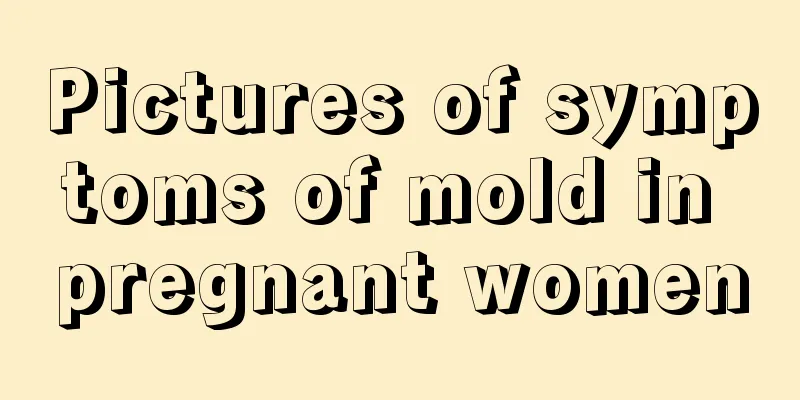What is the best way to supplement estrogen after menopause?

|
Many people think that there is no need to supplement estrogen after menopause. This idea is wrong. Estrogen can not only promote the development of secondary sexual characteristics, but also effectively prevent the occurrence of some diseases. If estrogen is not supplemented as soon as possible after menopause, the continuous decrease in secretion levels will give many diseases an opportunity to take advantage. So what should you eat to supplement estrogen after menopause? After menopause, estrogen levels drop, and many women experience annoying symptoms such as hot flashes, irritability, dryness and pain caused by atrophy of the urethral and vaginal mucosa. Osteoporosis, cardiovascular disease and Alzheimer's disease are also related to the decline of estrogen. Therefore, scientific estrogen supplementation can alleviate these symptoms and reduce the risk of cardiovascular disease, osteoporosis and other diseases. Supplement foods containing vitamins. Vitamins are found in foods such as milk, eggs, meat, beans, fruits, grains, and fish. Since 25% of menopausal women suffer from osteoporosis, bone protein and bone calcium deficiency, it is very necessary to supplement calcium foods. Milk is the richest in calcium and is easily absorbed and utilized. Developing the habit of drinking 1 to 2 glasses of milk every day can help prevent menopausal fractures. Eat more foods rich in omega-3 fats, such as flaxseeds, which contain linolenic acid, an omega-3 fatty acid. Moreover, the lignans contained in flaxseeds are phytoestrogens, which can prevent breast cancer and uterine cancer. Increase protein foods, especially those from dairy products, eggs, lean meat, fish and soy. These foods can effectively relieve menopausal discomfort. Eat carbohydrates in moderation. Carbohydrates are found in large quantities in rice, noodles, beans, fruits, vegetables, and plant roots. Carbohydrates are a source of calories, and excess carbohydrates are converted into fat and stored. Wheat, black rice, fennel, sunflower seeds, onions, garlic, celery, sesame, rice, oats, mung bean sprouts, mussels, etc. all contain natural hormone-like substances. Meats such as turtle, duck, clam and squid also contain estrogen. There are many nourishing medicinal herbs containing isoflavones, which can supplement phytoestrogens, such as fungus, white fungus, bird's nest, lily, lotus seeds, wolfberry, mulberry, cordyceps, ginseng, American ginseng, angelica, etc. Through the above introduction, everyone is clear about what to eat to supplement estrogen after menopause. Everyone needs to constantly improve their health to avoid some health risks. Estrogen supplementation is also very important, not too much or too little. A reasonable diet and improved lifestyle habits are crucial. |
<<: Estrogen supplementation after menopause
>>: What to do if women have high estrogen levels
Recommend
Why does my skin itch after moxibustion? What causes a high fever after moxibustion?
Moxibustion, also known as moxibustion therapy or...
What are the best ways to slim down your thighs?
As the saying goes: Everyone has a love for beaut...
Is it OK to swim on the last day of your period?
It is very important for women to take care of th...
What should I eat during my menstrual period?
A girl’s first menstruation is called menarche, a...
How long after a chest X-ray can I breastfeed?
Women who are breastfeeding are not recommended t...
How to judge whether it is amniotic fluid leakage
For pregnant women, amniotic fluid is an importan...
What causes endometrial cancer?
Clinically, many diseases occur in the female ute...
Who has a stronger immune system, someone with severe symptoms after infection or someone with mild symptoms?
Based on the symptoms of most people after testin...
What to do if the vagina is severely itchy in the morning and evening
Severe vulvar itching can affect people's dai...
What to do if the anterior vaginal wall is protruding
Have you ever heard of anterior vaginal wall prot...
Is your menstrual period regular?
With the development of puberty, girls will have ...
Why does the ring fall off?
At present, many newlyweds are busy with their ca...
What are the advantages and disadvantages of drinking honey water for girls
As we all know, honey is a very natural health pr...
How long does it take for a girl to have her period if she has leucorrhea?
Women will start to have their periods as their b...
What is the reason why the leucorrhea is a little blue?
A woman's leucorrhea often reveals whether sh...









